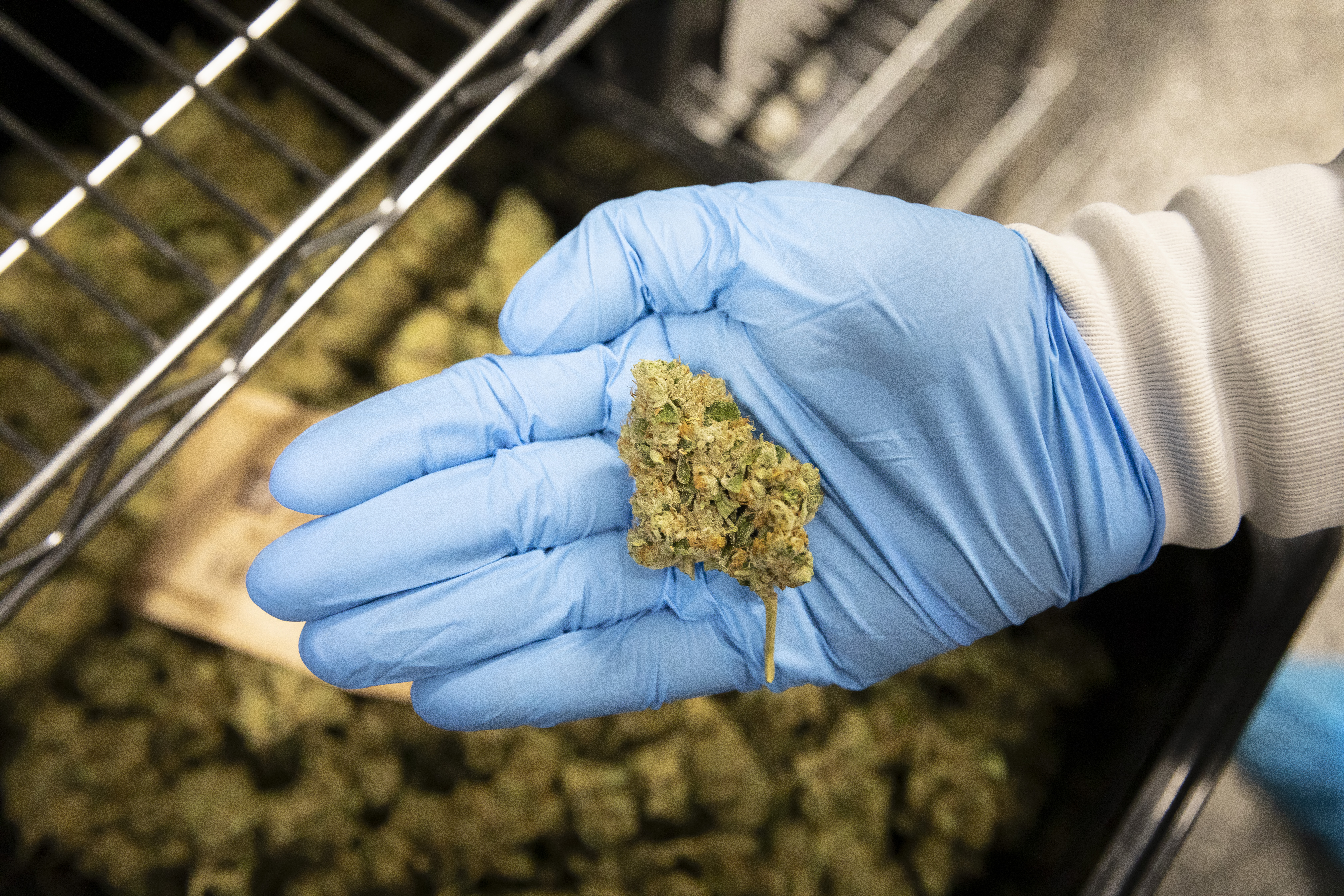
PHOTOS: The Life Of A Marijuana Plant
The four-month cultivation process might be contributing to Chicago’s shortage of legal cannabis
By Manuel MartinezHow does Baby Mary Jane go from an 8-inch bud to the bud sold in marijuana dispensaries? Let’s just say she lives a complicated life.
It takes about four months to grow and process the female plants, which is part of the reason for shortages at Illinois’ legal pot shops.
In southwest suburban Elwood, workers at Cresco Labs grow strands like Katsu Bubba, Apple Rock Candy and Rollins inside a 43,000-square-foot facility. Nearly half of their plants will be sold to smokers, while the rest will be turned into concentrate, edibles or topical lotions.
Here’s a look at the life of a marijuana plant, from baby to dispensary.
Born as clones
Inside Cresco Labs, baby marijuana plants don’t grow from seeds — they are snipped from “mother plants.” Each plant will produce about a half pound (220 grams) of usable cannabis flower, said Jason Nelson, Cresco’s head of growing operations.

Only 6 weeks of childhood
Rows and rows of these baby plants spend six weeks in the Vegetation Room, where workers feed, water and trim them.

Teenage plants need more space to grow
After six weeks, the plants are transferred to the Bloom Rooms, where they’ll spend two months growing their desirable flowers. For consistency, netting is used to help keep the plants the same size.


Dried and extracted
At three months old, the fully-grown plants are dried and distributed for production. Some plants will be sold to smokers; others will be turned into edibles or oils.




Prepared, packaged and distributed
The dried plants then spend about a month inside the kitchen and production spaces, where they are cooked and packaged in odor- and tamper-proof containers.




Sold in stores
The final products are then sent to legal dispensaries around the state, where consumers spent nearly $40 million on recreational weed during the first month of sales. Dispensaries sold more than 970,000 cannabis products in January, according to state officials.

Additional reporting by WBEZ’s Mariah Woelfel. Manuel Martinez is a visual producer at WBEZ. Follow him on Twitter at @DenverManuel. Mary Hall produced this story for digital. Follow her @hall_marye.

